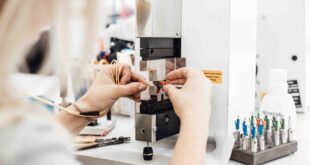Ramya Sriram discusses how freelancing can help graduates develop their soft skills after they leave university
Soft skill-intensive occupations will account for two-thirds of all jobs by 2030, according to a report by Deloitte.
Skills like communicating with clients and adapting to different projects can be just as valuable to a successful business as technical knowledge.
From bloggers and photographers to IT consultants, the number of people entering freelance work continues to grow. According to simplybusiness.co.uk, there was a 31% annual rise in people looking to freelance in 2018.
While this has been driven by creative industries, specialist knowledge professionals are also pursuing freelancing as a way of overcoming the challenges of entering research and academia, including strong competition and short-term contracts.
By freelancing alongside their research or studies, early career scientists can gain consultancy experience and develop soft skills as they work on high-impact commercial projects.
Client communication
Collaborating with clients – online, over the phone or in regular face-to-face meetings – is a key component that’s “necessary for a successful and mutually satisfying engagement,” according to Richard Bradford, a freelance statistician at Kolabtree.
While graduates develop subject-specific knowledge and learn technical skills like designing experiments at university, freelancing can complement these by requiring them to communicate and collaborate with clients.
Communication is vital if freelancers are to understand their client’s needs and ensure that they’re aware of the project’s progress.
For instance, if a data analysis is a few days behind schedule it’s important that the company or individual knows.
Early career scientists will also learn to manage the projects they’re working on by regularly agreeing fees with clients, setting targets and deadlines and prioritising any tasks that must be actioned either by themselves or the client.
When a British insurance company required a freelance statistician to verify the results of a policy study, the company wanted to have a phone interview with them first. After posting its project on Kolabtree’s online platform, the company chose Dr Colin Gillespie, an experienced statistician and lecturer, working with him over two weeks.
The freelancer not only took the lead on the technical elements of the project to ensure that it met the deadline, but he also liaised with the company regularly to alleviate any concerns and give progress updates.
Adaptation
At university, students gain a great deal of theoretical knowledge, which can be applied in different ways.
Freelancing gives scientists the flexibility to develop interdisciplinary skills, by applying them to different projects.
Collaborating with clients on various projects broadens their experience and enhances their ability to adapt to different industry requirements. For example, one month, a freelance medical statistician could be planning the interim analysis of a clinical trial that’s testing a cancer drug and the next they could be collaborating with another team that’s trying to treat Parkinson’s disease.
Regularly working with different clients will also require early career scientists to adapt to using separate methodological tools.
For example, Ahmed Taher, a freelance medical researcher and biostatistician at Kolabtree, is an experienced researcher in obstetrics, emergency medicine, neurology and can write manuscripts, conduct meta-analyses and use software including SPSS and RevMan. Therefore, one company could hire him to write a manuscript for a clinical trial, while another may need him to use SPSS to manage its datasets.
Universities are searching for ways to enhance the skill sets of their students and graduates so that they can contribute effectively to academia or industry. Encouraging early career scientists to consider freelancing alongside their occupation can help them apply what they’ve learned at university by developing additional skills including client communication and adapting to different projects.
If soft-skill jobs will account for all occupations by 2030, it’s important that graduates can meet these demands.
Kolabtree is partnering with universities to help their graduates expand their skillsets by becoming a freelancer.
Ramya Sriram is digital content manager of freelance platform for scientists Kolabtree.
 Engineer News Network The ultimate online news and information resource for today’s engineer
Engineer News Network The ultimate online news and information resource for today’s engineer



